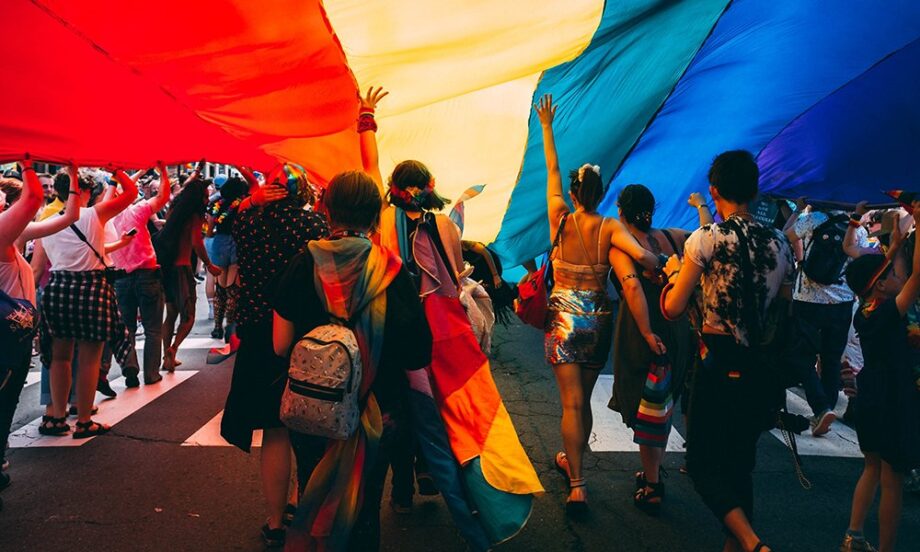Every year, around Pride, I hear the same question: do I belong at Pride? Should I consider myself queer?
This question can come in many forms, but the general sentiments are the same: do I qualify as part of the LGBTQIA+ community? Does my identity fall within the rainbow umbrella of terms? What if my experience isn’t enough to qualify me as queer?
All of these questions are valid and common.
Many people feel that they may not queer if they have not had certain romantic or sexual experiences. If they are newly out, or if they present in a gender-conforming way. They may question if it is even appropriate to come out or go to LGBTQIA events and groups, and sometimes their hesitation is confirmed by negative experiences.
I have met a number of people who have lied about or hidden their lack of certain experience with partners because they fear rejection over being considered too new to queerness.
I know, in my personal experience, that even though I am queer and non-binary that because of my presentation many people assume I am straight and cisgender. Going to queer events and being told, “It is so nice to have an ally here” hurts. I feel invisible and excluded no matter how many same-sex partners I have had or how real my gender identity is to me.
Comments like these cause many people to think they have to have a certain number of partners or sexual experiences to be out. We often question if our clothing is queer or trans enough.
Does this haircut make me look gay?
Am I passing in a world that demands I fit inside a box that doesn’t feel authentic to me?
These are very real, if not toxic, questions, and concerns that run through our minds. There is no dress code for being LGBTQ.
We come in all forms, all preferences and manifestations. Together this diversity in representation makes us the colorful tapestry that we are.
I know as a sex educator and counselor that these questions are common so I reached out to my colleagues to see how they help students and clients navigate what can feel like emotional landmines. Margaret Nichols, AASECT certified sex therapy supervisor, and author of the forthcoming book from Routledge, "The Modern Clinician's Guide to LGBTQ+ Clients: the Inclusive Therapist" said:
“First, the acronym has included a 'Q' for questioning for a long time, and rightly so - almost all of us who are 'queer' went through a 'questioning' and 'unsure' period before coming out to ourselves.
"During this time, it is especially helpful to seek out LGBTQ+ peers - when I do therapy with people in this stage, I always suggest they participate in 'queer' groups, organizations - and/or Pride. Just go to Pride and march by yourself, with a friend, or with whatever group you feel most affiliated.
"Unfortunately, most stigmatized minorities include people who vent 'lateral hostility' at other members of their tribe. The queer community is no different - you will still find gay people, for example, who don't think bisexuals or transgender people should be included.
"But our tribe is a 'big tent' community - diversity is one of the hallmarks of being LGBTQ+, the community continues to expand to include all those who are 'outsiders' because of a non-traditional sexual orientation, gender, or relational style. In recent years it has expanded to include asexuals, people who are kinky, and people in the polyamory community, for example. Whatever you are - you are 'queer enough'!"
Read: Words From a Bisexual on LGBTQ Pride Month I remember when I taught high school sexual health that many students would ask me if there was a test they could take to see if they were gay, trans, bi or not. Sadly, there are said tests on the internet, but none of them are really useful or valid. Queerness is not something you can pass or fail. It is not something that fits inside a box that you or anyone else can check or uncheck. There is not a bar that must be met in order to qualify as “queer enough,” and yet, because of internalized homophobia and shame, we and those around us can often make us think that there is. No matter your sexual history, no matter your experiences, or how you present to the world, if you know you are not straight or cisgender, there is space for you within the rainbow that is the queer family. We value you for who you are and where you are in your unique journey. Read: Pride Hits Differently When Your Relationship Doesn't Look Queer
Dr. Laura McGuire (they/them or she/her) is an internationally recognized consultant, survivor, researcher, seminarian, and author of the book Creating Cultures of Consent (Rowman & Littlefield, 2021). Dr. McGuire is a certified full-spectrum doula, professional teacher, a certified sexual health educator, and a vinyasa yoga instructor. Their experience includes both public and private sectors, middle schools, high schools, and university settings. They currently are earning their Masters of Divinity at Earlham Seminary where they are studying the intersections of Judaism, trauma-informed care, and restorative-justice in faith settings. Dr. McGuire lives in the United States, where they work as an adjunct professor at Widener University and consultant at The National Center for Equity and Agency.




